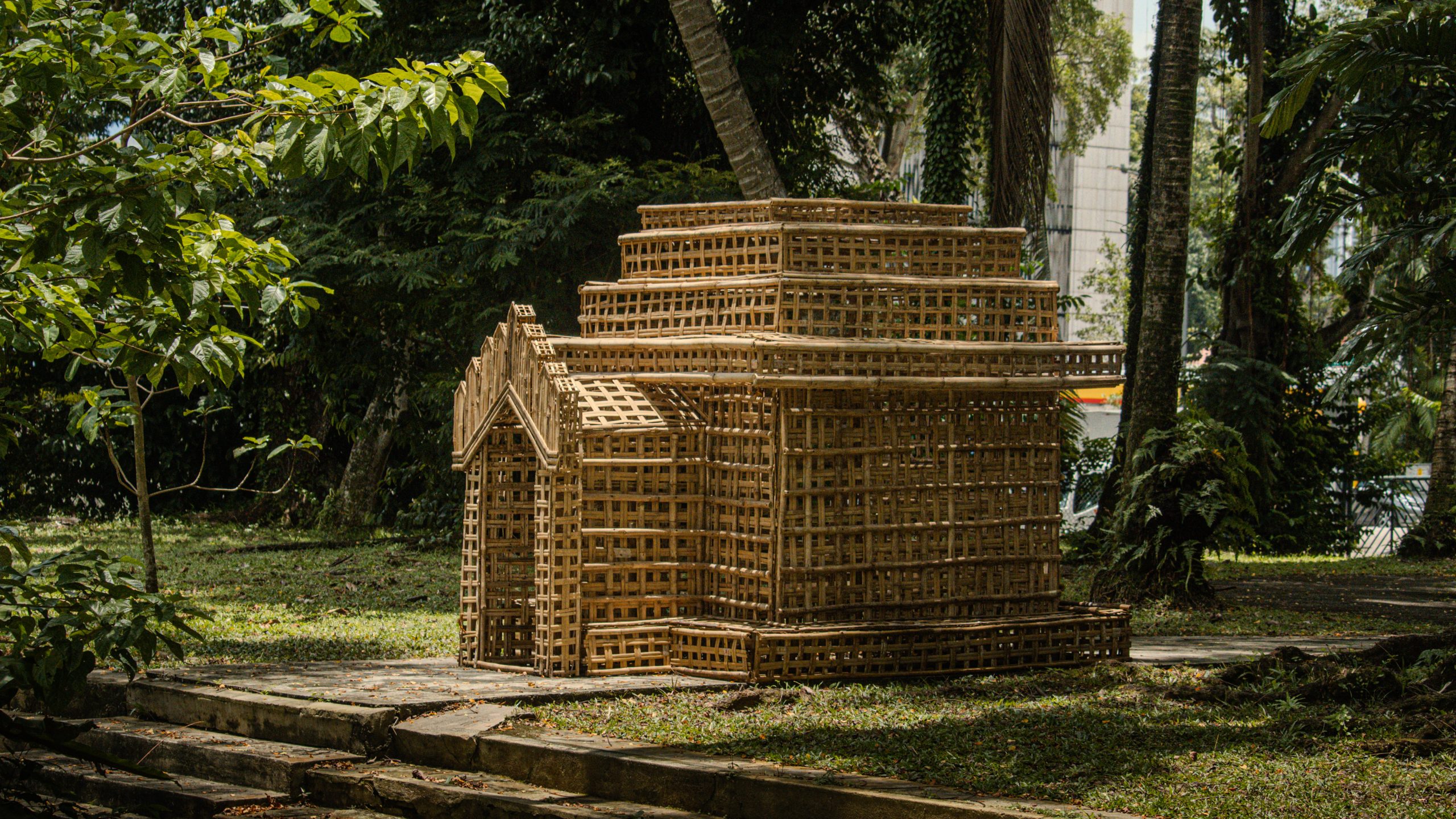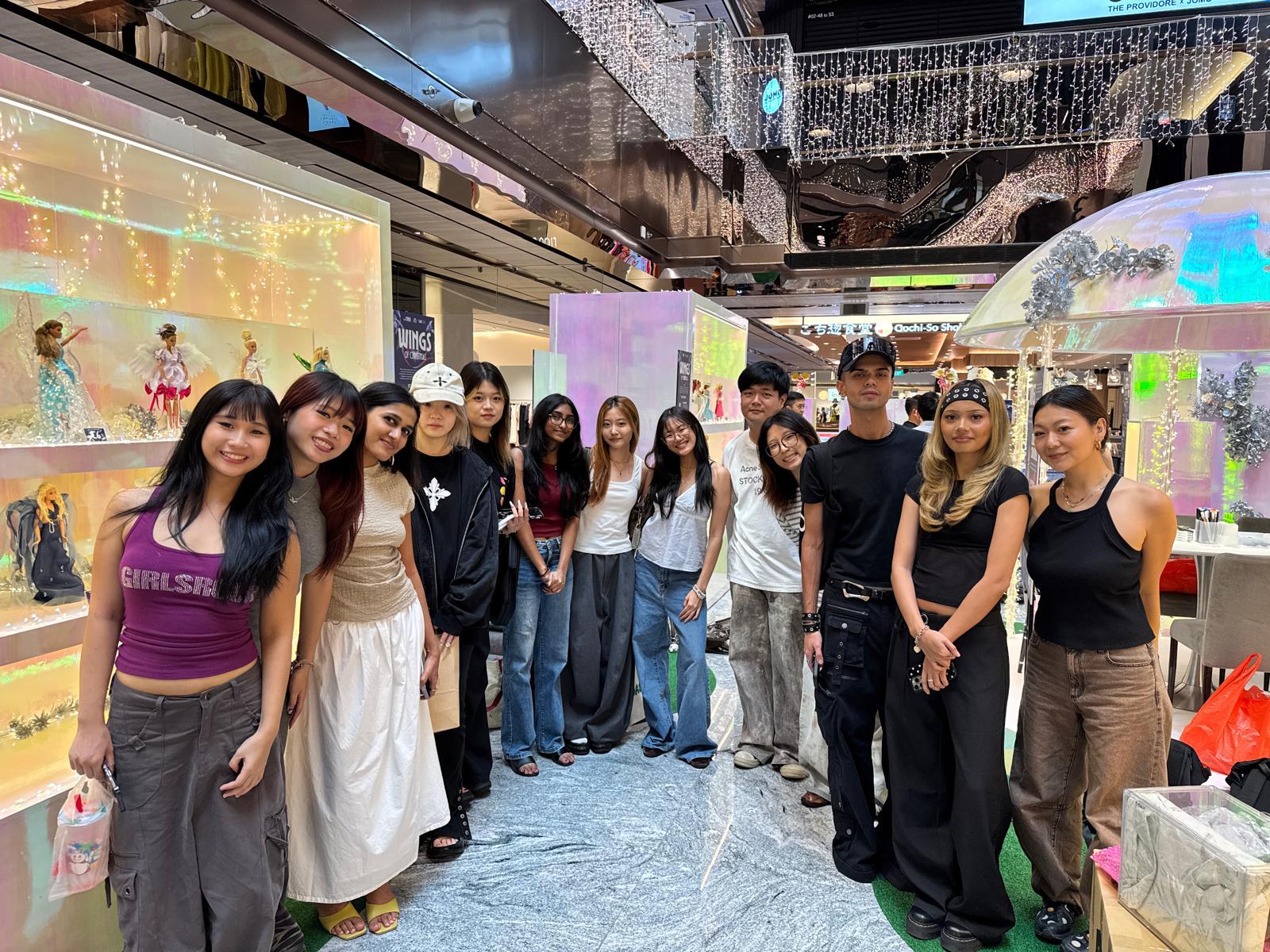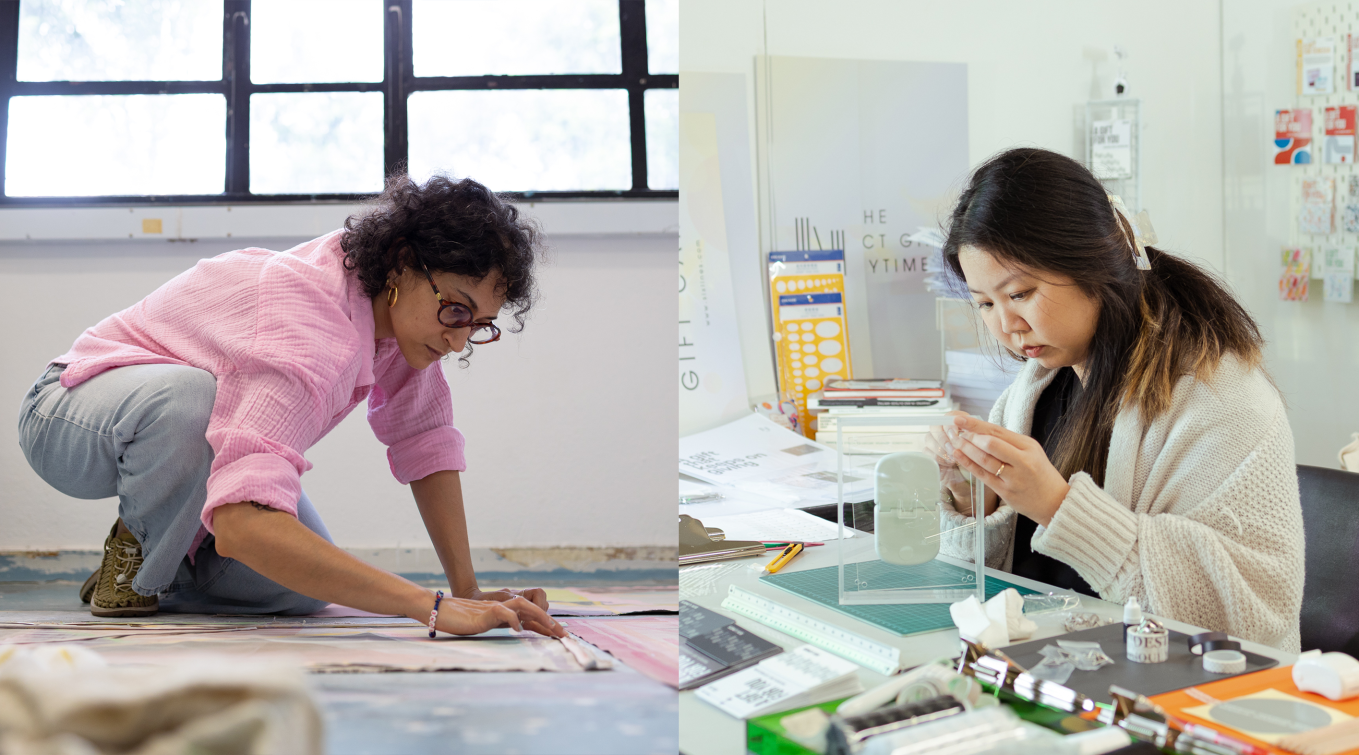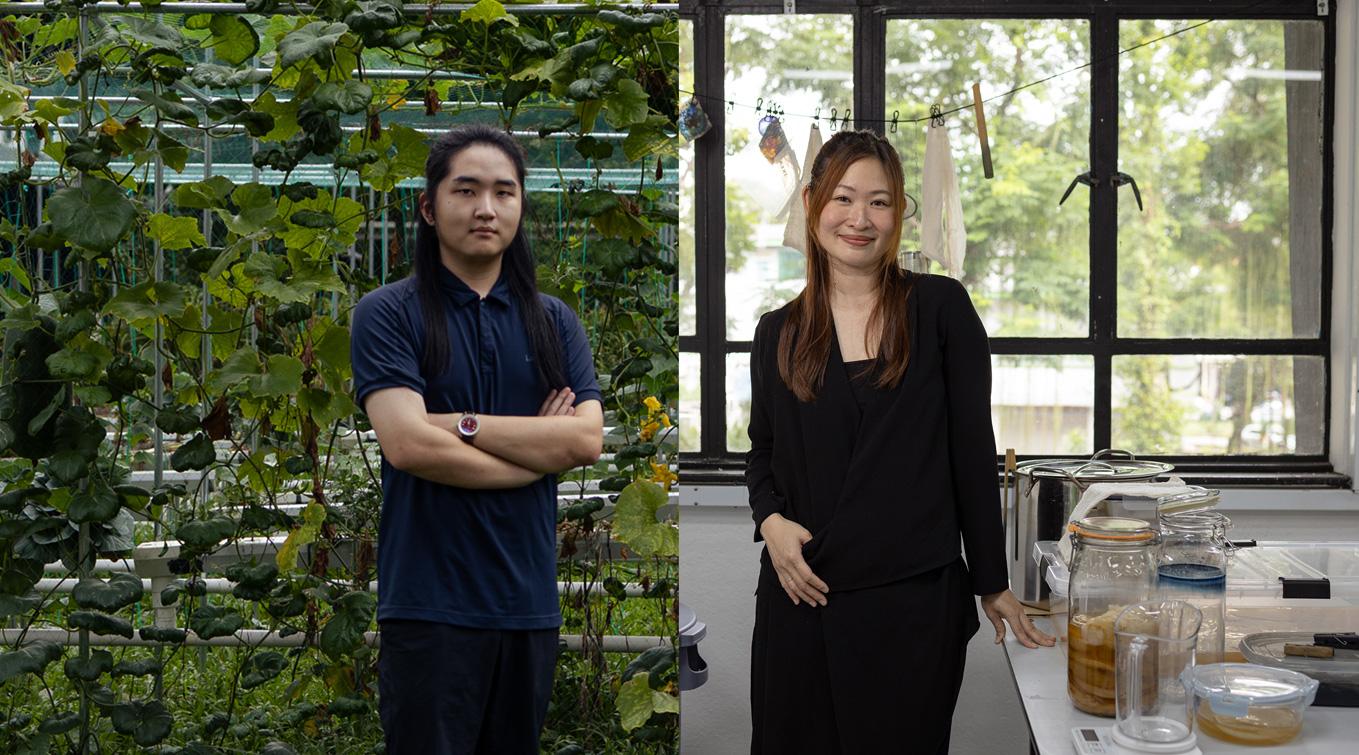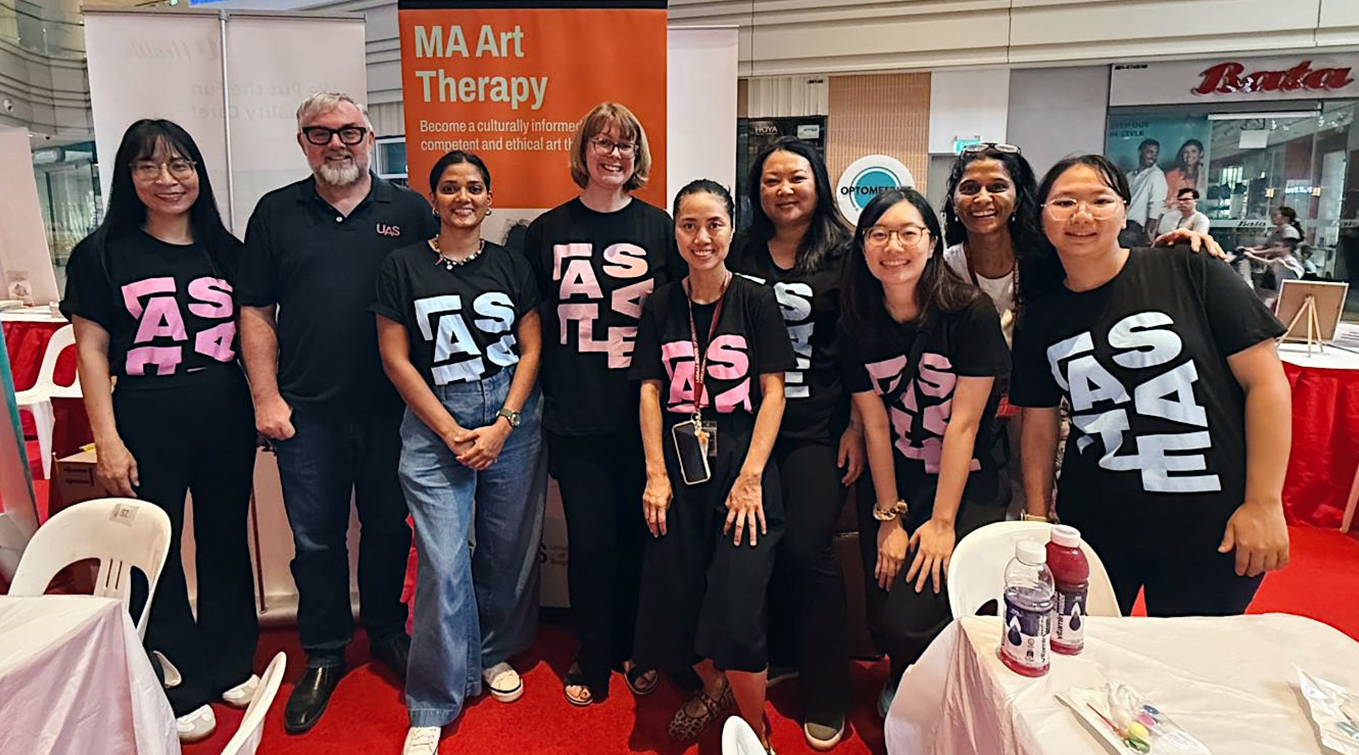In conversation with: Laura Kee on bettering working conditions for actors
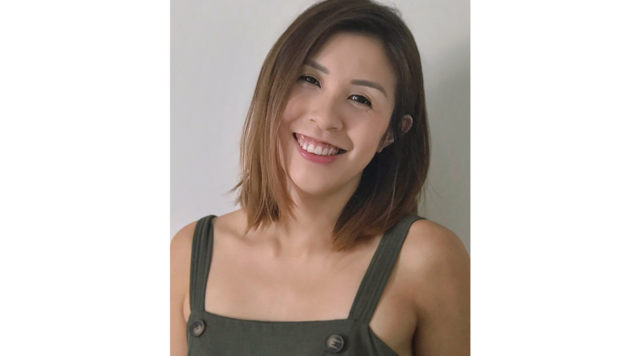
When actor Laura Kee got involved in the newly-registered The Actors’ Society (TAS) shortly after its inception in late 2019, she could not have foreseen the onset of the COVID-19 pandemic, as well as the resulting chaos it wrought on live performances and the actors that rely on such jobs for survival.
Unexpectedly elected as chairperson of the society in the midst of Singapore’s Circuit Breaker period, Laura has served as an advocate for actors in the local scene at a pressing time when the supposed ‘non-essential’ nature artists has been up for debate.
As part of her advocacy work, Laura found herself speaking with government agencies and other stakeholders in order to raise actors’ concerns from the ground up. Searching for ways to deepen her knowledge in the area of arts and cultural leadership and develop a more mature approach towards arts advocacy, Laura enrolled on a part-time basis in LASALLE’s MA Arts and Cultural Leadership programme, where she is set to graduate in 2023.
We spoke to Laura about how she hopes to be a voice for fellow actors in Singapore, what she’s gained from her time in the MA programme, as well as advice for anyone interested in applying to the programme.
What motivated you to get involved in The Actors’ Society?
I was initially roped into a sub-committee of TAS when they needed manpower to get things started. Admittedly, I tend to have difficulty saying ‘no’ to things, but I also saw an opportunity to offer what I had for the community, so I got involved.
I never expected to be elected chairperson. But having been entrusted with this responsibility, I wanted to be a voice for actors in Singapore and hopefully effect change in the local industry. As actors, and freelancers generally, we tend to be lone wolves, and our mindset is often geared towards competition rather than collaboration. Many of us want to see change in the local arts scene – better working conditions, fairer rates, less power imbalances – and we want our local talents to be valued and respected. But unfortunately, few are willing to step out to be the change.I fear that if I don’t do this, no one will.

Laura (first row, first from right) with fellow actors at an Acing Your Theatre Audition workshop organised by TAS with instructor Cheryl Chitty Tan. This workshop was held on 24 March 2020, the day it was announced that theatres and live venues were to be closed.
What did you hope to gain from your time in the MA Arts and Cultural Leadership programme?
I’ve always found it difficult to reconcile my logical and rational mind with the emotional connections and soul-searching depths that my craft demanded of me. Through the pandemic, in spite of the chaos and confusion, I had the space to discover my strengths and the platform with which to find ways to help my community. I wanted to expand my knowledge in the area of arts and cultural leadership, and also develop a more mature approach towards arts management and advocacy. I also looked forward to the opportunity to have more open discussions within the programme, and meet like-minded people whom I could learn from and learn together with.
How do you think being both a practitioner and also an arts manager helps you in your work?
My work as a practitioner informs my work as an arts manager. I find it immensely helpful to have experience as a practitioner on the ground, as it enhances my understanding of the issues that actors face on a day-to-day basis. Also, when I provide feedback to government agencies or seek to implement new initiatives, I can think from the mindset of a practitioner – what is my immediate experience and what would be useful to me? With the addition of the arts manager’s mindset, I am also able to look at issues and problems from a wider perspective, and discover more avenues through which I am able to effect change.

Laura and fellow representatives from various industries at a meeting organised in August 2021 by NTUC’s Freelancers and Self-Employed Unit. The meeting was convened to discuss changes to the Copyright Act. (Image credit:MP Patrick Tay’s Facebook post.)
What have been the most insightful moments of the MA thus far?
In my first semester, I was introduced to a new term: ‘precarious labour’. That discovery gave me a new conviction for my thesis, as I realised that precarious labour is exactly what I am passionate about – working towards fairer and better working conditions for arts freelancers in Singapore. Through speaking with my lecturers, I learnt that very limited data has been collected on arts freelancers in Singapore. More research needs to be done on the conditions for precarious labour in Singapore, and I hope to be able to work on that.
Throughout the course, various class exercises and assignments have all served to deepen my knowledge of arts management. One simple tool which I found really useful was the problem tree, which helps one to analyse an issue beyond its symptoms in order to identify the core problem, as well as root causes. I also really look forward to open discussions in class, because so many topics are of direct relevance to what we do – such as funding and financial sustainability, leadership and strategy, and many more – and I enjoy listening to my lecturers’ and classmates’ perspectives.
What would be your advice for anyone thinking of applying to the MA Arts and Cultural Leadership programme?
Know why you are applying to the MA Arts and Cultural Leadership programme, and let that motivation keep you going. Keep an open mind and get ready to be challenged by perspectives that you may never have thought of before. Understand the role of an arts manager and the difference between leading a business organisation versus an arts organisation. If you have a thesis topic in mind, be prepared that this may change along the way as you discover more aspects of arts and cultural leadership. Be aware of how your life and your work experiences influence your mindset and outlook.
And lastly, I hope you like reading and research! -laughs-

Laura (top row, second from left) with participants from TAS’s Online Actors Jam on 27 May 2021. During Singapore’s Heightened Alert, actor jams, when actors can work on scenes together, moved online. As of 2022, TAS is moving back to in-person monthly Actor Jams once again.
Apply now for our postgraduate programmes.




